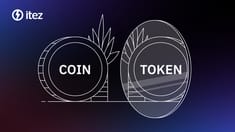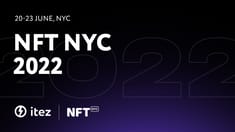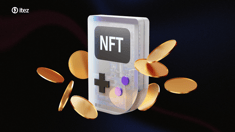On December 9, Tether, the issuer of the USDT stablecoin, changed its crypto addresses blocking policy. The company will now voluntarily block addresses connected with sanctioned individuals included on the Office of Foreign Assets Control's (OFAC) Specially Designated Nationals (SDN) List. Under the new policy, the company has already blocked 161 addresses, totaling approximately 3.5 million USDT.
Why Tether can block USDT tokens
USDT is a centralised stablecoin issued by Tether Limited Inc. It is the first and largest stablecoin on the market, which has recently turned 9 years old. USDT’s market capitalization stands at $90 billion, trailing only Ethereum (ETH) and Bitcoin (BTC).
Tether works on many blockchains and is in huge demand among users. However, its smart contracts have an important feature that is criticised by cypherpunks but yet essential for compliance — the ability to lock tokens at any address.
The company does not use this very often. According to Dune, Tether has blocked a total of 1,224 addresses, involving 805,967,233 USD tokens.
Usually, the company blocks addresses that are related to fraud at the request of law enforcement agencies in different countries. However, sometimes there are other cases. For example, in August, Tether saved $20 million for Binance, which an employee of the exchange mistakenly transferred to the address of a fraudster.
What are OFAC and SDN
OFAC, or Office of Foreign Assets Control, is a division of the US Treasury Department that deals with financial intelligence and the planning and application of economic and trade sanctions.
OFAC maintains the SDN, or Specially Designated Nationals List, a blacklist of individuals and companies associated with crimes. Their assets are blocked, and US citizens are generally prohibited from dealing with them. Crypto addresses are also on this "list."
New Tether policy: voluntary blocking of addresses on the SDN
The essence of Tether's new policy is simple. Earlier, the company blocked USDT only at the request of law enforcement agencies. On December 9, Tether announced a voluntary initiative. In addition to the previous rules, the issuer can freeze addresses from SDN without additional requests from the United States.
Thus, USDT was blocked on all 161 addresses that were already in the SDN on the day of the announcement. New addresses that will fall into the SDN, the company promises to promptly block.
As Tether CEO Paolo Ardoino stated, "By executing the voluntary wallet address freezing of new additions to the SDN List and freezing previously added addresses, we will be able to further strengthen the positive usage of stablecoin technology and promote a safer stablecoin ecosystem for all users".
Catchy facts about the 161 SDN-listed addresses that Tether blocked
Several interesting observations emerged from the 161 SDN-listed addresses that Tether blocked:
1️⃣ 150 addresses had no longer USDT on their balance at the time of blocking, yet the total blocked amount was about 3.5 million USDT.
2️⃣ One address contained almost all the blocked USDT (3.4 million). According to ZachXBT, a popular blockchain analyst within the crypto community, this wallet is linked to the recent $41 million crypto gambling platform Stake hack.
3️⃣ The other address currently has 0.16 USDT blocked, but less than 3 days before Tether's new policy was announced, almost 400,000 USDT was transferred from it.
4️⃣ Tornado Cash smart contracts (a project for anonymising transactions) have been on the SDN list since August 2022. One of them allowed anonymising transfers in USDT. With Tether's new policy, it was also blocked. Thus, it is now impossible to transfer USDT through Tornado Cash, and the $24,000 "stuck" on it will be unavailable until the blocking is lifted.
👀 You might also like:
Tornado Cash founders charged by US federal courts
The SEC recovered $5B in 784 lawsuits for 2023 fiscal year








